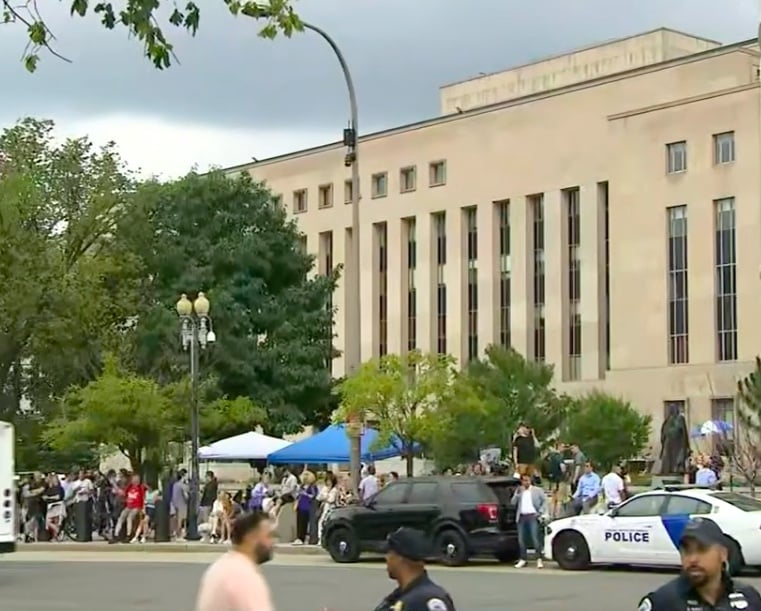U.S. District Court Judge Tanya Chutkan said on Friday that she would adopt the Trump team’s scope for a protective order that was requested by Special Counsel Jack Smith’s office barring the former President from publicly disclosing evidence in the 2020 election interference case.
In Chutkan’s ruling, non-sensitive material won’t be covered by the order, but she did note that Trump is bound by conditions to which he agreed during his arraignment not to undertake witness intimidation.
The judge further denied the defense’s request to broaden the definition of authorized people, stating that such a definition could “include just about anyone” including the six “unindicted co-conspirators” listed in Trump’s indictment.
“Mr. Trump, like every American, has a First Amendment right to free speech,” the judge noted. “But that right is not absolute.”
She warned Trump attorney John Lauro during the hearing that both he and Trump must “take special special care in your public statements about this case” because she will “will take whatever measures are necessary to safeguard the integrity of these proceedings.”
Judge Chutkan further cautioned, “The more a party makes inflammatory statements about this case which could taint the jury pool…the greater the urgency will be that we proceed to trial quickly.”
The judge Chutkan heard arguments Friday from both sides after the special counsel’s office request for a protective order was sparked by a posting by Trump on his Truth Social website in which he asserted in all caps, “IF YOU GO AFTER ME, I’M COMING AFTER YOU!”
Trump posted the assertion one day after his arraignment, during which he pleaded not guilty to four criminal counts related to alleged interference in the 2020 Presidential election: conspiracy to defraud the United States, conspiracy to obstruct an official proceeding, obstruction of and attempt to obstruct an official proceeding and conspiracy against rights.
Protective orders are common in criminal cases. However, special counsel prosecutors had said it was “particularly important in this case” because Trump has posted on social media about “witnesses, judges, attorneys, and others associated with legal matters pending against him.”
The prosecution further said it’s ready to hand over a “substantial” amount of evidence, including “sensitive and confidential information” to Trump’s defense team, asserting that if Trump were to begin posting about grand jury transcripts or other evidence, it could have a “harmful chilling effect on witnesses or adversely affect the fair administration of justice in this case.”
The special counsel’s protective order was seeking to prevent Trump and his attorneys from divulging materials provided by the government to anyone other than people on his legal team, possible witnesses or their attorneys, or anyone approved by the court. The order also sought to place stricter limits on “sensitive materials,” including grand jury witness testimony and materials obtained through sealed search warrants.
Trump’s attorneys responded to the request by saying the proposed protective order was too broad and would violate the former President’s First Amendment rights as he runs for reelection in 2024. The defense had asked that only “genuinely sensitive” material be shielded from public view.
On Thursday special counsel prosecutors requested a January 2, 2024 start date for the actual trial. Trump’s lawyers have not submitted their proposed trial date. The judge is expected to set the date during another court hearing, scheduled for August 28.
PHOTO: DC Federal Courthouse during Trump’s August 3 arraignment


